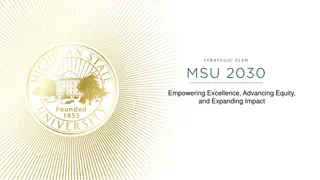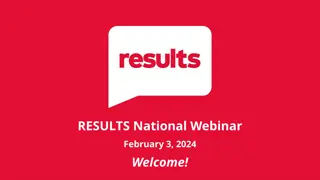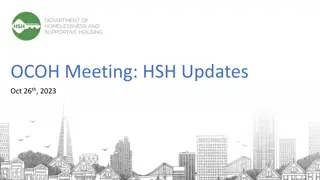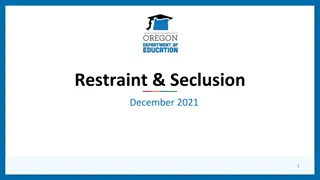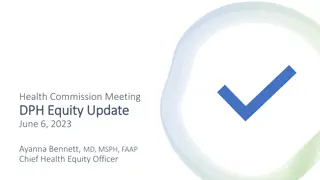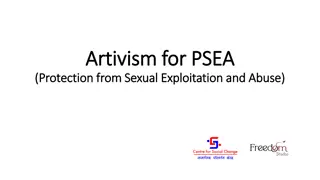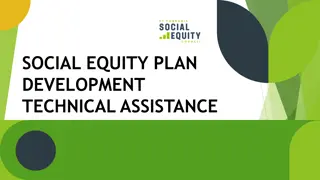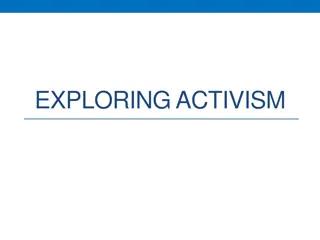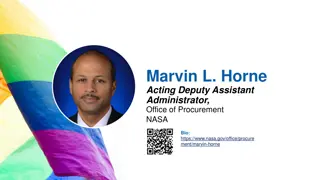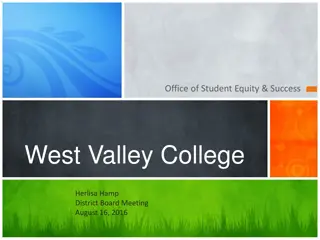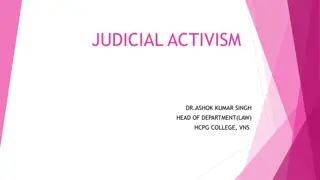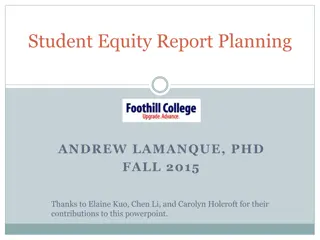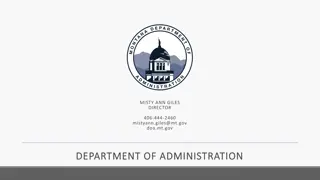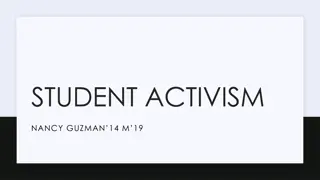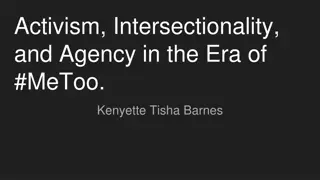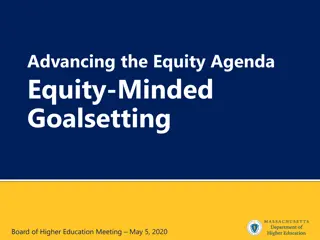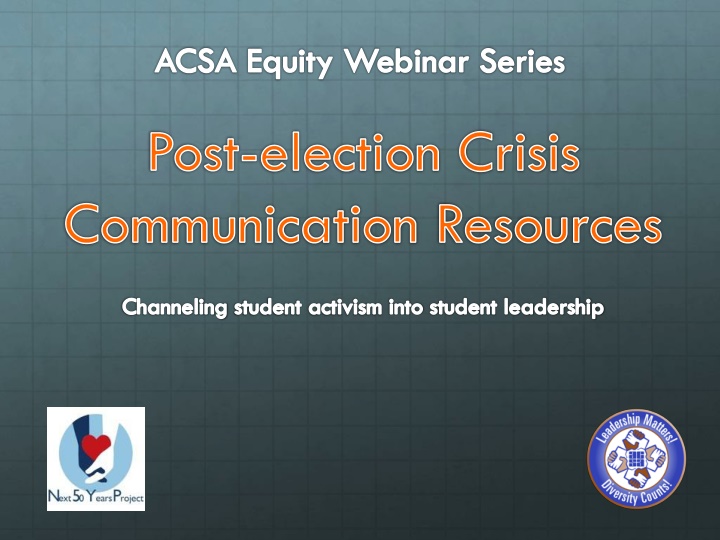
Addressing Post-Election Challenges: Supporting Student Leadership
Gain insights on supporting students in a post-election crisis, channeling activism into leadership, addressing issues like equity, trauma, and advocacy. Learn to foster a safe, respectful environment and provide resources for student well-being and activism.
Download Presentation

Please find below an Image/Link to download the presentation.
The content on the website is provided AS IS for your information and personal use only. It may not be sold, licensed, or shared on other websites without obtaining consent from the author. If you encounter any issues during the download, it is possible that the publisher has removed the file from their server.
You are allowed to download the files provided on this website for personal or commercial use, subject to the condition that they are used lawfully. All files are the property of their respective owners.
The content on the website is provided AS IS for your information and personal use only. It may not be sold, licensed, or shared on other websites without obtaining consent from the author.
E N D
Presentation Transcript
ACSA Equity Webinar Series Post-election Crisis Communication Resources Channeling student activism into student leadership
Understand the current reality for students in the education and society. Today s outcomes Obtain best practices related to post-election challenges for students and the school community. Gain understanding of support and resources available to leaders.
Our current reality Impacted by poverty and trauma, as well as diverse cultural backgrounds that often differ from staff and faculty. Experience inequity of resource distribution (i.e. facilities, staff, etc.) and impact of educational gaps (i.e. achievement, access, etc.). Impacted by presidential election, which sparked hatred, anger, fear among students. Lack exposure and understanding to culturally relevant instruction and skills on how self advocate effectively for social change.
What happened in your community?
Post-election success & healing We have witnessed our students express various actions stemming from emotions of fear and frustration in the forms of walk outs, marches, and even violent protests. We recognize that these actions can be disruptive to school activities and present safety concerns for students and the school community. While the post-election results fostered dialogue about social justice issues, it also hatred and division. It is imperative that students learn how to disagree but with love and respect. -- Nicole Anderson
Nine points of support
Nine points of support Ensure students and families feel safe and respected. Provide a forum for students voices on issues. Ensure all staff are properly utilizing restorative practices, trauma informed care, as well as crisis response protocols.
Nine points of support Assess the issues and needs of students and provide counseling and other support services. Ensure student safety/guidance for peaceful actions and facilitate student cooperation. Provide students with examples of effective advocacy and activism.
Nine points of support Provide talking points for all staff. Provide instructional support to connect curriculum to student experience. Ensure all zero tolerance policies and practices toward hate and violence are observed.
Questions to consider How are you personally feeling after the election? What specific issue (pick one) concerns you the most after the election? Why? Have you discussed the election with your parents and/or other family members? Have you participated in any activism with your peers? What? How can I/we support you here at school? What are your priorities? Are you thinking about becoming a leader to create positive social change? What would you like to learn about regarding facilitating positive change?
My job is to bring light rather than heat to issues of importance to our society. Gwen Ifill Political reporter and co-anchor PBS News Hour
Equity resources Visit www.acsa.org/member-services/equity Links to articles and information. Timely articles on relevant topics. Books and videos. Professional coaching, training and development.
ACSA Equity Services Monthly Equity Twitter Chats (next chat Nov. 30 @ 1pm). Equity Institutes and networking events. Equity 101 Workshop Series, Equity Leaders Academy, online professional development and toolkits. Research projects. Equity Leader coaching and mentoring.
ACSA Communications Support Naj Alikhan ACSA Communications Director/Public Information Officer nalikhan@acsa.org 916.832.2818 916.329.3832
Equity Support Nicole Anderson, Diversity and Equal Access Executive Nanderson@acsa.org or 916-539-7161 Visit us at www.acsa.org/member-services/equity for more information and to learn about our equity partners. Follow us on Twitter: @ndanderson Join our #EdEquity Twitter Chat on Nov. 30 1pm; @acsa_info
Our equity partner Aliah MaJon, PhD, Founder, Next 50 Years Project Aliah@next50yearsproject.org 310-927-9167 (Cell phone) visit us at http://next50yearsproject.org/secret- language-of-equity/ Follow us on Twitter: @next50yearsproj

